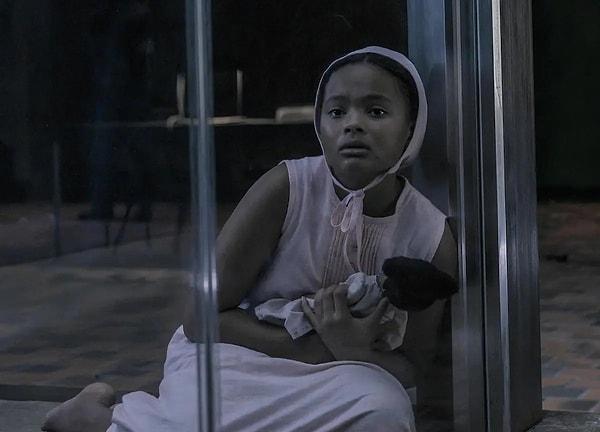The Handmaid's Tale: Who is Agnes Jemima?
Have you ever wondered why children are so willing to believe in Santa Claus? They reach an age where they can understand the basics. They know that reindeer can't fly and that it's impossible for a sleigh to cross the world in one night, but they still cling to the fantasy.
They're in love with the idea of magic; the rules of the universe bending and shaping for the sake of a good story. Parents around the world recognize that and they use it to their advantage. In Greece, they make up stories about Lamia, a rainbow serpent with the head of a woman that eats naughty children. In parts of Eastern Europe, they use Baba Yaga, a vicious hag that flies around in a mortar wielding a pestle. They believe every word, no matter how ridiculous it is, or how impossible it might seem.
They do this because they have to. We are all born with a blank slate, ready to be filled with the knowledge we need to feed ourselves, keep ourselves safe, and maneuver through life. But we have to be willing to receive that knowledge, which is why children are so malleable. When their parents tell them to beware of a predator, they have to accept that message, even if they have no proof that the predator is real. They can't trust their own understanding of things, so they look to someone else to tell them what to believe.

Courtesy of Hulu
In many ways, this process is what keeps us alive. Early men would learn about the dangers outside their village, how to hunt, shoot a bow and arrow, and throw a spear. They'd absorb the knowledge of the generations before them and pass it down to their own children. It's necessary for survival, but it can get messy.
Children pick up on our bad habits and vice. They learn our prejudices and our false beliefs, and all of those things leave a mark. They stick, just like our belief in Santa Claus. We do learn from our parent's mistakes and throw out old falsehoods, but the ones that matter--bad religion, racism, and misogyny--still define us and loom over our lives, even after we've learned the truth.
That's one of the reasons why people talk so much about indoctrinating children or trying to reach the youth of today. They know that if you can gain the trust of a child, you can begin to pull them in and feed them information. If you define a structure of beliefs and rules, you can help shape the person that they will become later in life.

Courtesy of Hulu
Much of this information is counterintuitive. The sum of our beliefs and choices cannot be defined by something our parents told us when we were toddlers. That's a demeaning prospect, but the proof is right there in front of us. Think of all of the strange myths that men have passed down over the years, all of the old practices. Then there's morality. Society always seems to have a caveat when it comes to the difference between right and wrong. It's all about pacifism and compassion up until a certain point; after that, anything is justified--slavery, murder, torture--it's all OK. And while there is a specific set of morals that belong to our species, there's a quite a few that simply belong to our culture. We learn them from other people, who in turn reinforce those mindsets.
Keşfet ile ziyaret ettiğin tüm kategorileri tek akışta gör!

Send Comment